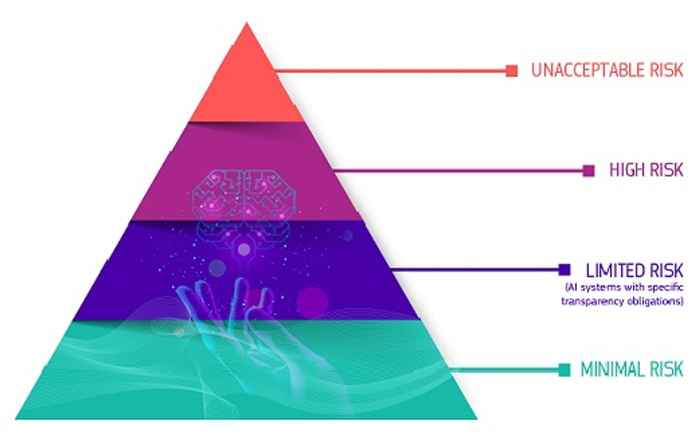Europe's digital dilemma: how to balance AI innovation and regulation?
Daniel Mügge on the future of digital policy
3 March 2025
Daniel Mügge, professor of Political Arithmetic at the University of Amsterdam, is at the forefront of research on AI governance, particularly in the European context. In this interview, we explore Mügge's insights on AI regulation, the impact of Trumps election success on digital policy, and Europe’s technology dependence on the United States and China.
The European Union’s approach to control AI
Over the past six years, the European Union has worked on a legal framework to manage the development and deployment of AI. The recently adopted AI Act aims to ensure that Europe can benefit from AI while reducing its potential risks. Mügge outlines the key aspects of the AI Act, which include:

- Prohibiting harmful AI applications: ‘For example, applications of AI that are developed to manipulate people are forbidden.’
- Ensuring fairness in AI-driven decision-making: ‘People of color and women have been discriminated by AI in the past. The EU tries to prevent algorithmic discrimination, ensuring that minority groups are not unfairly treated by AI-driven hiring or evaluation systems.’
- Controlling Large AI Systems: ‘The EU seeks to hold powerful AI models like ChatGPT accountable for causing problems, for example by producing harmful content.’
Despite these efforts, Mügge argues that the EU’s legal framework mostly protects individual rights rather than addressing the broader societal effects of AI. ‘The AI Act falls short in tackling systemic issues, such as the role of AI in spreading misinformation and its impact on democracy. Others are worried that it damages educational systems, as the attention spans and mental health of young people through these new technologies. The new rules do not empower society to move digitalisation in a direction that is good for all of us.’
The influence of Trump’s election on AI policy
Europe remains highly dependent on foreign tech giants, mostly from the United States and China. The recent election victory of Donald Trump caused a shift in the relationship between Europe and America, particularly regarding digital regulations. ‘Under Trump, major U.S. tech companies, including Meta, Microsoft, and Google, are trying to restore the relationship with him that has been complicated over the years. Facebook and Instagram used to sideline content that was marked as conservative, nationalistic, or potentially racist. This angered Donald Trump because he believed these actions unfairly targeted him and his supporters. Besides that, tech owner Elon Musk has gained direct influence over government decisions, especially in areas related to AI and digital policy’, Mügge explains.
Mügge thinks that for many people in Brussels, the election success of Trump came as quite a surprise. ‘The new U.S. government leads digital technology in a different direction than where Europe thought it would be going. There is disagreement in vision regarding digitalisation, which can lead to the use of different kinds of rules and apps between Europe and the United States.’
Why is Europe so strict about AI rules?
There are several reasons why Europe has more strict regulations on AI and digital technology. ‘First of all, it’s easier to impose tough rules on companies when they’re not from your own country. Most essential digital tools, operating systems, cloud services, AI platforms, and social media networks, are designed and controlled by American or Chinese companies’, Mügge explains. ‘Additionally, Europe tends to be more cautious against rapid technological change powered by extremely wealthy people. Lastly, Europeans think differently about free speech in digital spaces. Trump claims he wants people to be allowed to say just about anything online. European policymakers are more willing to set boundaries to control the conversation on social media.’
Europe’s Fear of Missing Out
Some policymakers in Brussels and other capitals argue that the EU should loosen some AI act rules to increase the competitiveness of the European tech industry. However, Mügge challenges this perspective. ‘While the U.S. enjoys rapid economic growth by its tech factor, it also faces problems as extreme income inequality, high stress levels, and shorter life expectancy. In Europe, we need a balanced approach that values well-being in our society over uncontrolled technological development.’
Independent Europe
To achieve this, Mügge argues that European policymakers should create strategies to empower Europe’s technological independence. ‘Europe’s reliance on American and Chinese products puts it in a vulnerable position. ‘To regain control over its digital environment, the EU must invest in its own tech industry, ensuring that critical technologies are developed within Europe rather than imported from abroad.